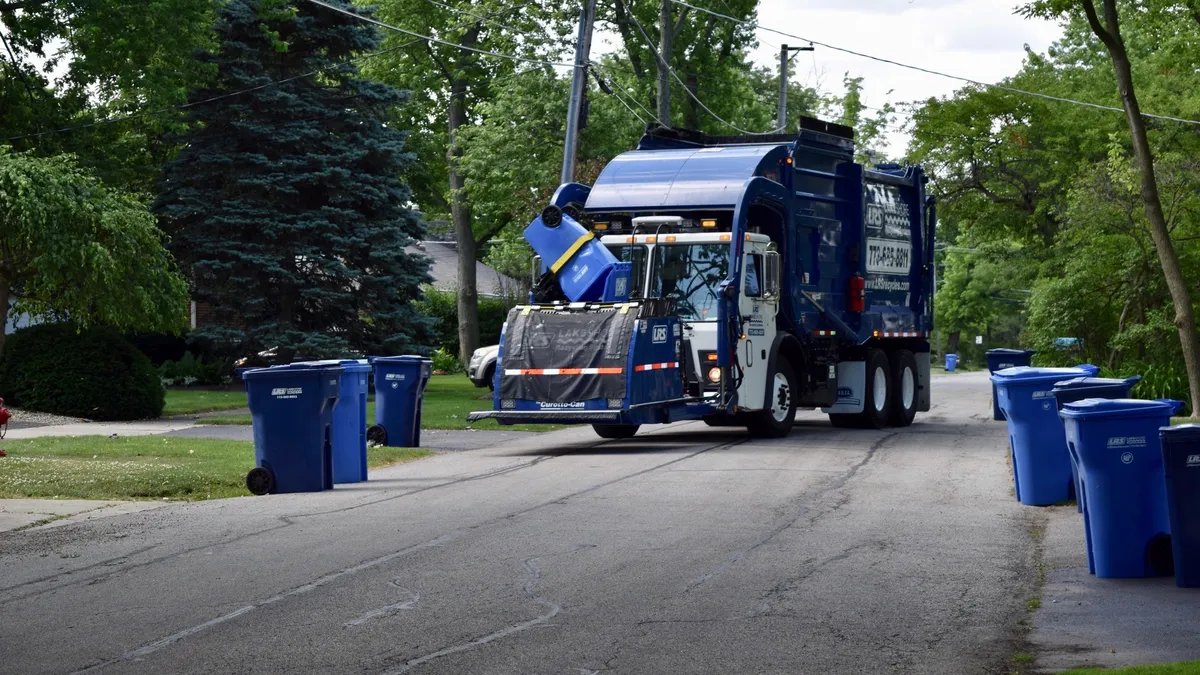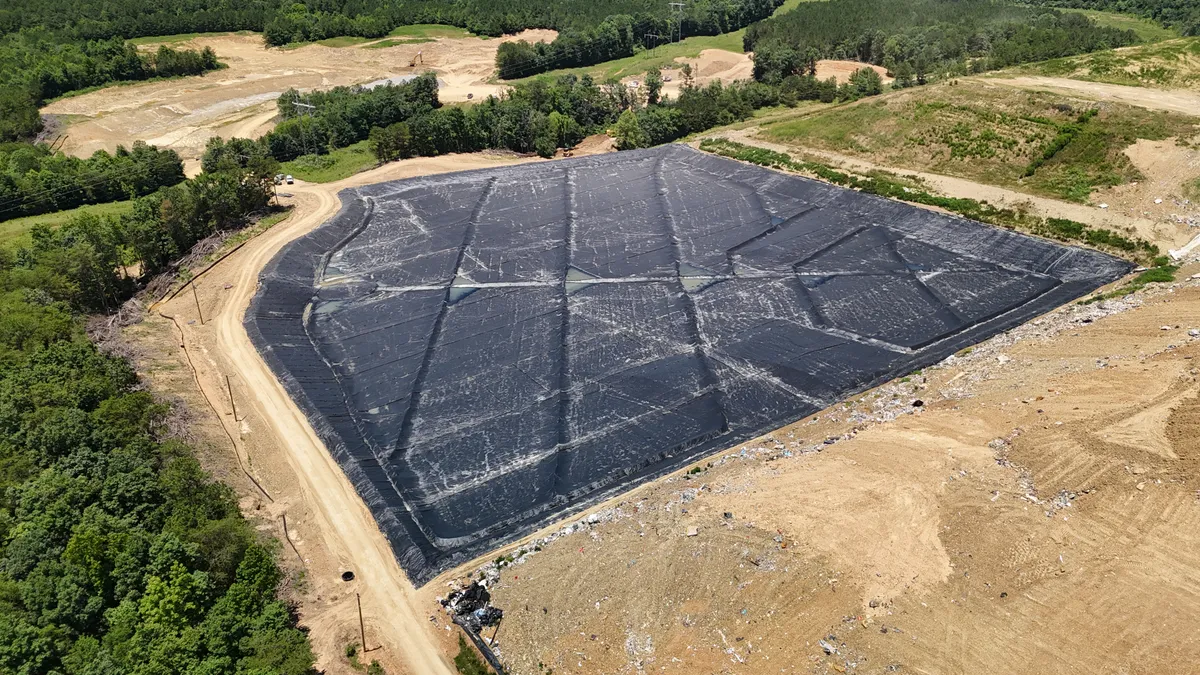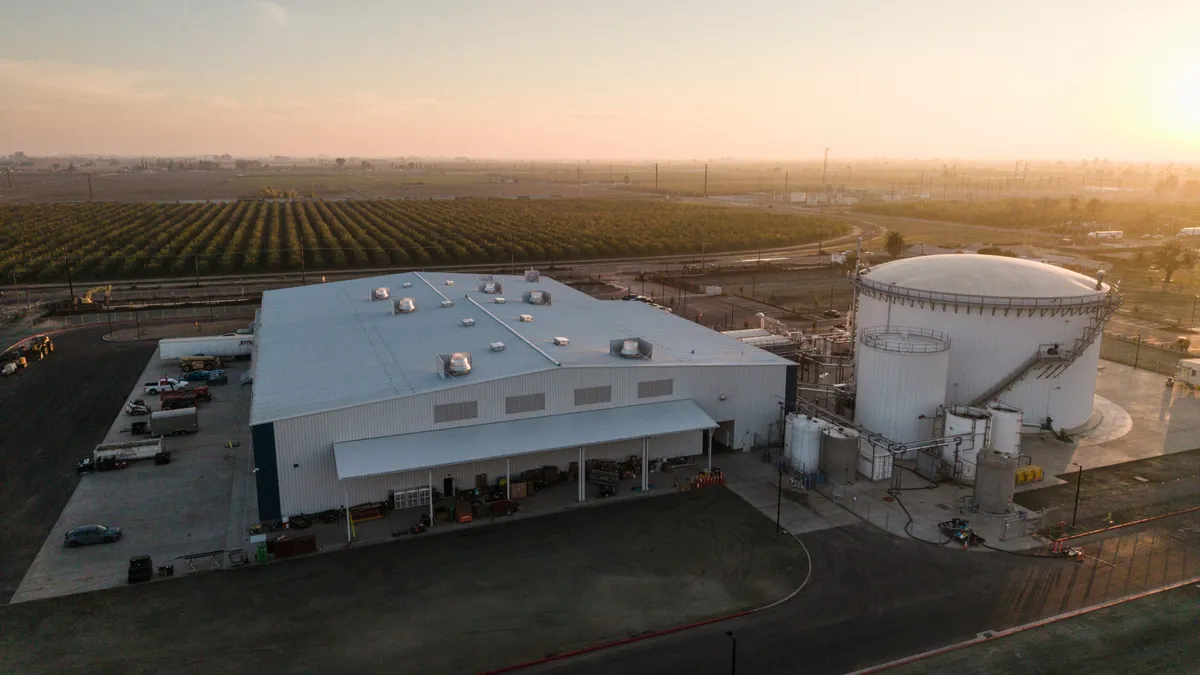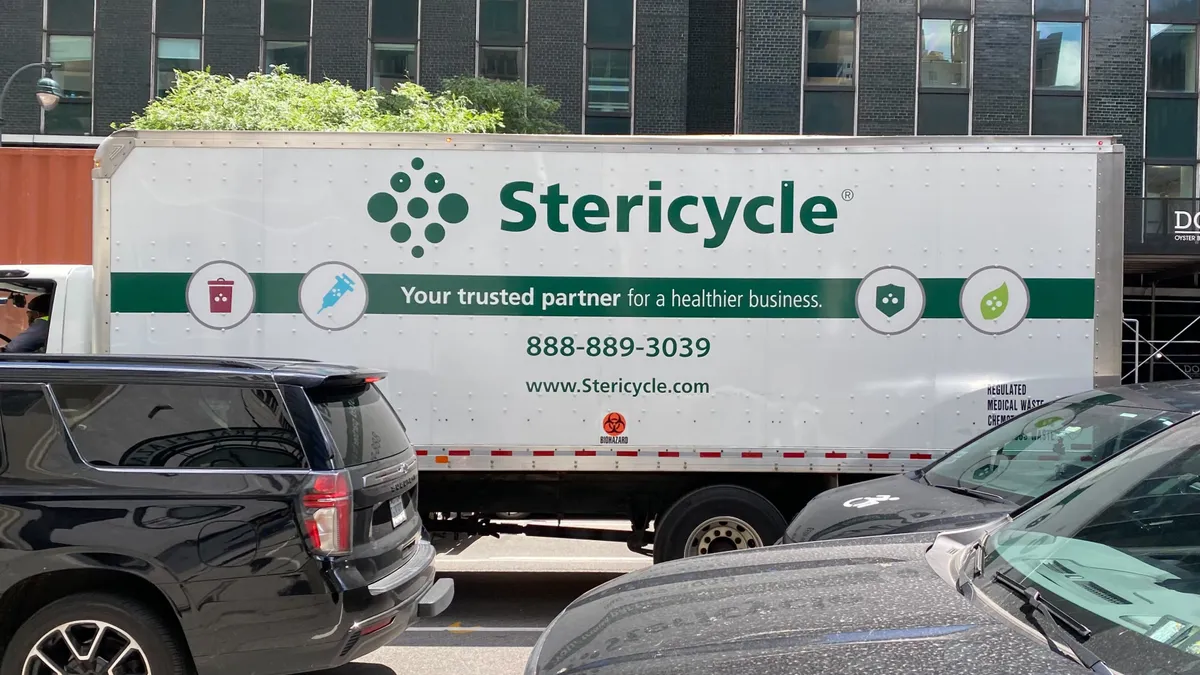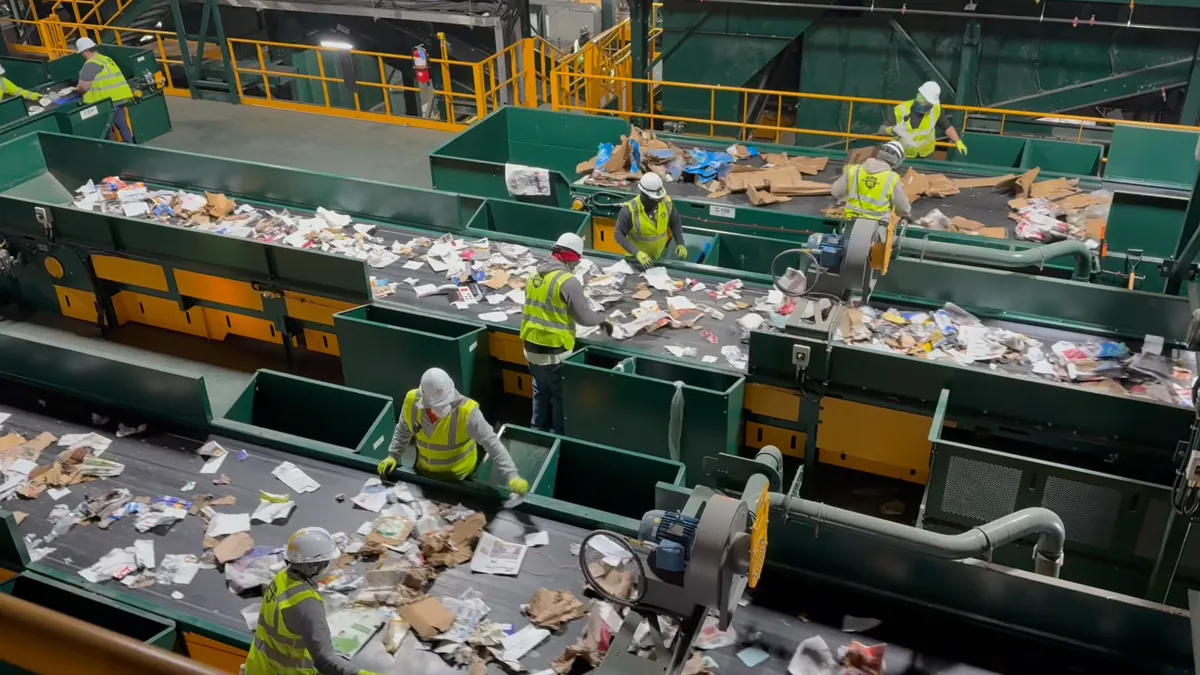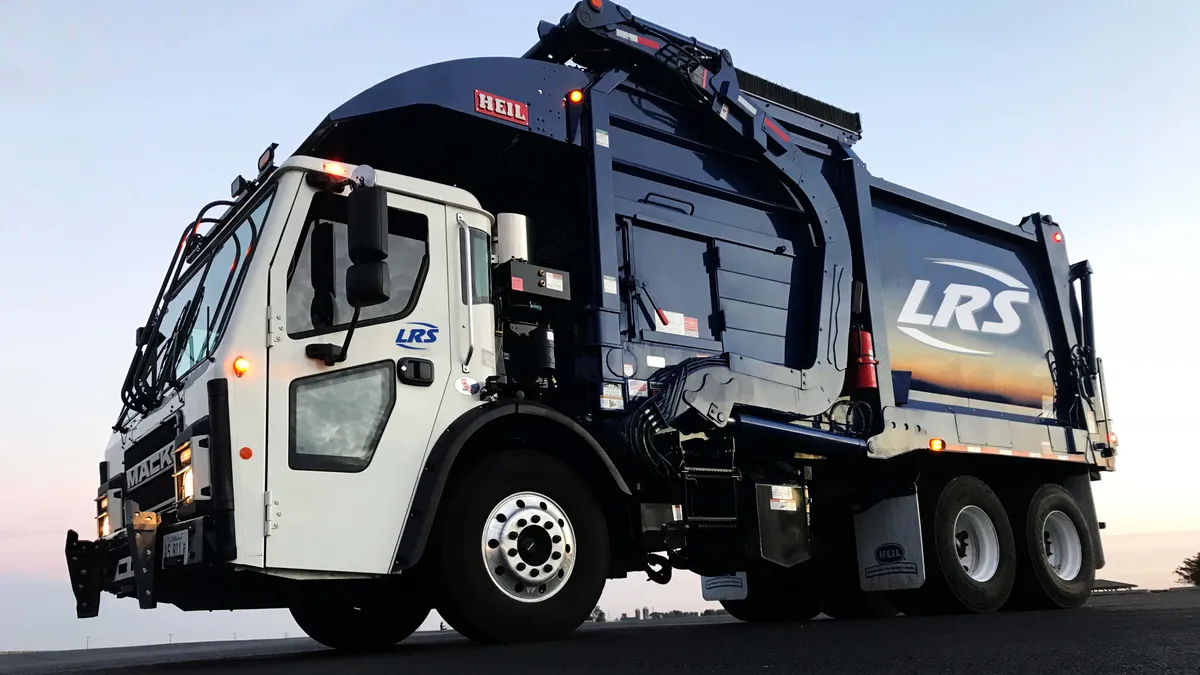Last year, as the Illinois market was captivated by transactions involving some of the industry's largest companies, Lakeshore Recycling Systems was quietly making moves to accelerate its growth as a major regional player. Now, the company is running one of the most active landfills in the state and just completed its biggest acquisition to date.
Following the recent purchase of Roy Strom, a family company with a long history in Chicagoland, Lakeshore has approximately 1,200 employees across two states and is on track for an estimated $300 million in annual revenue.
That acquisition came shortly after the completion of another deal in Wisconsin and other moves including the purchase of a portable restroom company. Just last month, the company also won a municipal disposal contract with Chicago potentially worth more than $19.3 million, and could be poised to expand its stake in the city's residential recycling program depending on another pending bid process.
This time last year, Lakeshore was making a play for expected divestitures from Waste Management's acquisition of Advanced Disposal Services – an outcome regional sources saw as key to the company's future – before ultimately losing out to GFL Environmental.
As 2021 begins, Lakeshore said it is coexisting well with the new Canadian neighbors and moving on.
"While obviously we were disappointed it didn’t fall our way it doesn’t really change my mission or what we’re trying to accomplish here," said CEO Alan Handley.
The Illinois market has been a hotbed of competition among industry majors for decades, with all four of the nation's largest public companies active and vertically integrated. Lakeshore long prided itself for not following that model, but changed course to stay competitive with the 2019 purchase of the Atkinson Landfill in northwest Illinois' Henry County. The site, since rebranded as the Ecology Solutions Landfill, has become home for an estimated 90% of Lakeshore's Illinois volumes and was described by Handley as one of the most active in the state.
The Illinois Environmental Protection Agency's 2020 landfill report won't be complete for a number of months, but preliminary data shows a clear spike in volumes. In 2019, the site (listed as "Eco Hill") reported disposing 191,432 cubic yards of waste. For the first three quarters of 2020, per state records, the same site reported accepting 1,612,608 cubic yards of waste and saw notable sequential growth. While the available data was incomplete for some other sites, and the pandemic's economic effects have varied, this unofficial tally easily puts Lakeshore's site in the top grouping of the state's most active landfills.
By rebooting this site described as "essentially dead" beforehand, Handley said "I control my own fate" in a market that has felt increasingly competitive since Advanced was purchased. “The disposal market’s not getting bigger, it’s getting codified," said Handley.
David Van Vooren, executive director of the Solid Waste Agency of Northern Cook County, said the landfill's revival was unlike anything he could recall in his tenure. It also potentially comes with added logistical and efficiency costs. He described the trip between this site and the Chicago area as an estimated hundred miles round trip farther than other major sites accepting regional waste today. Yet as Lakeshore increasingly wins business from larger players with their own landfills, having its own disposal site may also be a necessity.
“They’re one of the companies in the region that are still aggressively competing, at least on the municipal side, for contract work," said Van Vooren, describing Lakeshore as similarly aggressive on pricing. He indicated this all may add up to fewer disposal options at competitors' sites as the company becomes a stronger regional force. “Maybe it is economically in their best interest long term."
While making these plays for organic growth, Lakeshore has also developed a well-known reputation for expansion via acquisition.
“They are one of the more active companies in the Chicagoland region, if not the most active company, when it comes to acquisitions," said Van Vooren.
Lakeshore's purchase of Roy Strom, a third-generation operation that traced its roots back to 1944, was recognized by various regional sources as a very strategic move. Strom comes with an estimated 50,000-plus commercial customers, along with eight exclusive municipal contracts. In addition to a single-stream MRF, C&D recycling operations and other assets, the company comes with a transfer station in Maywood capable of handling up to 1,000 tons per day. Handley described that latter asset as "critical to solidifying my position in Chicago," with the ability to now expand further south and southwest in the city.
Handley said he'd been interested in the company for years and would have tried to acquire it regardless of what happened with the Advanced divestitures. The deal was announced last month with backing from Ironwood Capital. Managing Director Dickson Suit said this new partnership with Lakeshore was a good fit for the firm's waste industry criteria of strong management, market dynamics and growth opportunities.
“Being a major presence in Chicagoland and then going up to the southern part of Wisconsin is a really compelling business proposition," said Suit, describing the deal as "transformative" and previewing "a lot of growth opportunities" going forward.
That growth in Wisconsin has happened under the Badgerland Disposal subsidiary, and continued with the December acquisition of Landfill Reduction and Recycling. That company comes with a contract to run a C&D MRF at the Dane County Landfill, located in Madison, and was largely an infrastructure-driven move. Handley said this allows the company to consolidate some of its regional C&D operations, freeing up another location to help service existing residential and commercial accounts in the area.
These latest developments come less than a decade after Lakeshore was formed by the merger of two local companies itself. The company now touts itself as the seventh-largest private company in the industry and aims to continue climbing up the list.
“My goal, and we will achieve it, is we will be the largest independent waste and recycling company in the Greater Midwest," said Handley. "So we are actively exploring deals throughout that region.”



